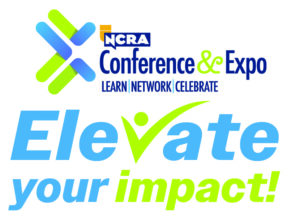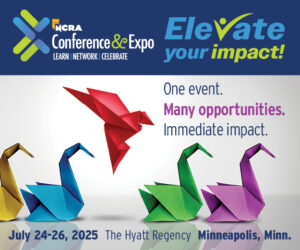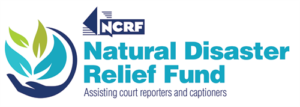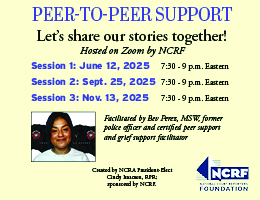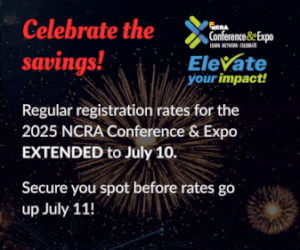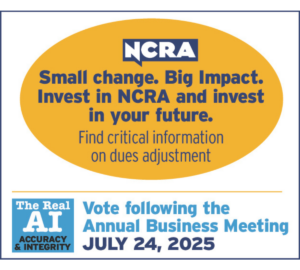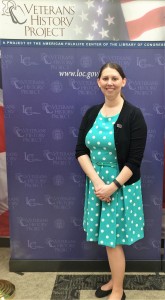
By Jessica L. Jaynes
While attending the 2016 NCRA Legislative Boot Camp, I decided to make the most of my downtime between meetings on Capitol Hill, so I visited the Library of Congress Veterans History Project Center. I wanted to see where the veterans’ stories I had transcribed in the past were kept and who uses them and for what purpose. My goal was to be able to take that information back to my association, the Michigan Association of Professional Court Reporters, to garner support for this year’s Veterans History Project (VHP).
I started my mission at the Library of Congress’ Jefferson Building, only to discover that the Veterans History Project Center is located in the American Folklife Center over in the Madison Building. I was directed down staircases and underground tunnels to make my way there. I finally made it to my destination where I met Christy Chason, VHP representative. Christy greeted me with a smile and asked what she could do for me.
I explained why I was in Washington, D.C., and I was hoping to be able to see the transcripts that I had sent in. Christy lit up, telling me how they love NCRA and the court reporters who have worked so hard transcribing the oral histories and what an important a role we play in the process. She apologized, saying that the transcripts are kept at an off-site location and that I wouldn’t be able to see them on that day, but that I was welcome to stay and take a look around.
The first picture I came across was that of Rep. Ron Kind (WI). Christy explained to me that Rep. Kind authored the original Veterans’ Oral History Project legislation after attending a family function with his father and uncle, both of whom served in the U. S. military, and wanting to document their experiences for future generations. He got a video camera and began recording their stories. I also found out that Rep. Kind’s wife is a court reporter.
The most interesting artifact I came across was a letter written home from a soldier to his beloved that was on government-issued toilet paper. The original is in a preservation environment, but there is an exact replica on the wall, along with a transcription next to it for easy reading. We proceeded on, looking at all the different photos and letters, and Christy shared the stories that went along with each of them. I was told that the transcripts we prepare are very important, as researchers, scholars, students, members of Congress, authors, and filmmakers access them on a daily basis. She was so happy that I had come to visit that she gave me a Veterans History Project pin that I proudly wore the rest of the day on my sweater to all of my meetings. I am currently awaiting a package of VHP swag from Christy to distribute at our next VHP Day coming up in November.
I would encourage all of my colleagues to transcribe at least one pre-recorded veteran interview from NCRA or to participate in your local VHP day this year. The experience is incredibly rewarding, and it means so much to our veterans to have their experiences shared. To learn more about how you can become involved with this project, contact April Weiner, NCRF Foundation Assistant, at 703-584-9052 or aweiner@ncra.org. You can also access the Veterans History Project online at loc.gov/vets. Next time you are in the area, stop by and see Christy and her colleagues. They would love to meet you.
Jessica L. Jaynes, RPR, is president-elect of the Michigan Association of Professional Court Reporters. She can be reached at jjaynes.steno@gmail.com.
The National Court Reporters Foundation (NCRF), the Association’s philanthropic arm, partnered with the Library of Congress more than 10 years ago to help collect transcripts for the Veterans History Project program through its Oral Histories Program. Transcripts provided to the Library of Congress are preserved for future use as part of the program. To date, NCRF has submitted 3,927 histories to the Library of Congress Veterans History Project and has a goal to submit just 73 more by Memorial Day for a total of 4,000. NCRA members earn 0.25 PDC for each transcript they complete, up to 1.0 PDC per education cycle. Please visit NCRA.org/Vets for more information on how to get involved.
